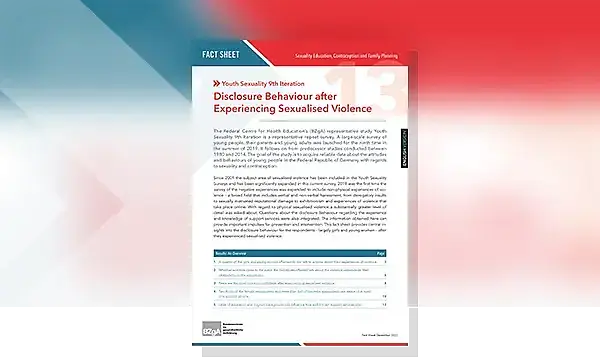The Federal Centre for Health Education’s (BZgA) representative study Youth Sexuality 9th Iteration is a representative repeat survey. A large-scale survey of young people, their parents and young adults was launched for the ninth time in the summer of 2019. It follows on from predecessor studies conducted between 1980 and 2014. The goal of the study is to acquire reliable data about the attitudes and behaviours of young people in the Federal Republic of Germany with regards to sexuality and contraception.
Since 2001 the subject area of sexualised violence has been included in the Youth Sexuality Surveys and has been significantly expanded in this current survey. 2019 was the first time the survey of the negative experiences was expanded to include non-physical experiences of violence – a broad field that includes verbal and non-verbal harassment, from derogatory insults to sexually motivated reputational damage to exhibitionism and experiences of violence that take place online. With regard to physical sexualised violence a substantially greater level of detail was asked about. Questions about the disclosure behaviour regarding the experience and knowledge of support services were also integrated. The information obtained here can provide important impulses for prevention and intervention. This fact sheet provides central insights into the disclosure behaviour for the respondents – largely girls and young women – after they experienced sexualised violence.
Results: An Overview
- A quarter of the girls and young women affected do not talk to anyone about their experiences of violence.
- Whether and how close to the event the individuals affected talk about the violence depends on their relationship to the perpetrator.
- Peers are the most common confidants after experiencing sexualised violence.
- Two thirds of the female respondents and more than half of the male respondents are aware of at least one support service.
- Level of education and migrant background can influence how well-known support services are.


